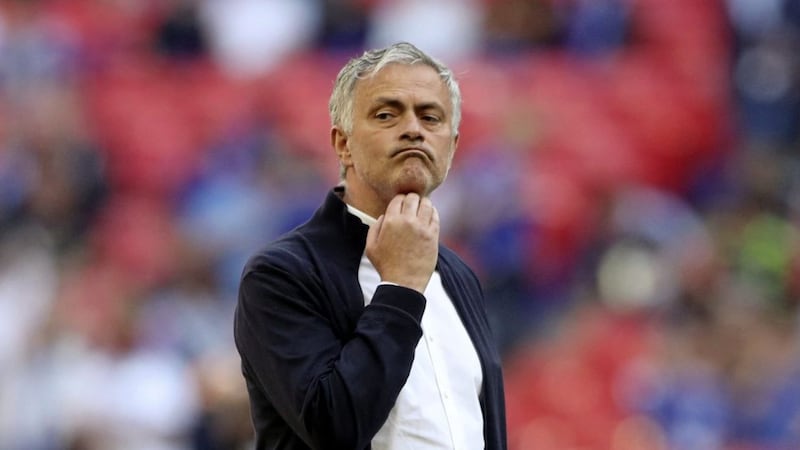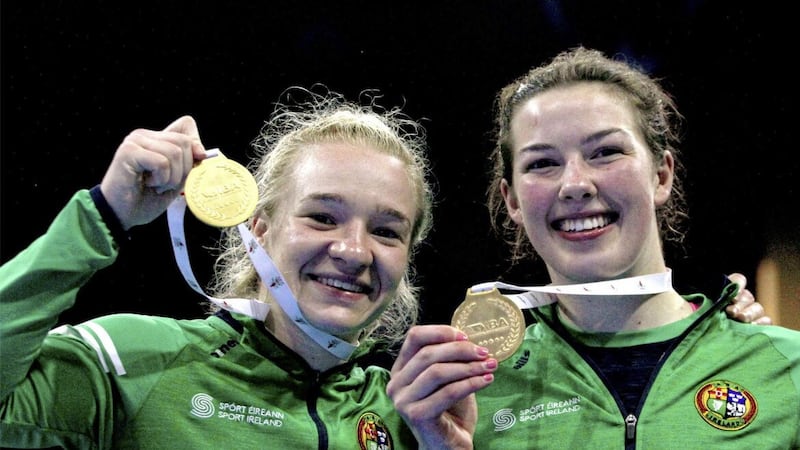JOSE Mourinho, as a manager, has always been lacking in class.
He was just as graceless in victory as he was in defeat.
He should never have been Manchester United manager.
The fact that he did manage the club for two-and-a-half fractious years – is it ever anything else with Jose? - tells you everything you need to know about the path its owners has forced it down.
As Paul Hayward succinctly put it, that’s what happens when you “replace an identity with a brand”.
Mourinho’s rap sheet is as long as his arm.
From casting aspersions over the impartiality of highly regarded referee Anders Frisk, to inciting the Barcelona crowd after his Inter Milan side knocked the Catalans out of the 2010 Champions League, to eye-gouging the-then Barca coach Tito Vilanova, to his constant belittling of Arsene Wenger during his time with Chelsea, to his bullying of club doctor Eva Caneiro, and the same with Manchester United defender Luke Shaw.
There are lots of other examples where he let himself and his employers down.
It was impossible for Mourinho to win with class.
For years, we had to listen to trite nonsense from football pundits and journalists alike of how Jose was “great for the game”.
At no time was he great for the game. He was often vitriolic, spiteful even, his teams leaving deep pockmarks on the game itself.
But he was great in the press room - so he got a pass.
He was one of the greatest showmen the game has ever seen but his teams rarely, if ever, played with the charisma he displayed when the cameras were rolling.
At Porto, where he won the Uefa Cup and Champions League in back-to-back seasons, an integral part of their strategy was gamesmanship.
On many occasions, it ensured victory.
Who can forget the way in which Porto went about beating Celtic in the 2003 Uefa Cup final in Seville?
It was ingrained in the Porto players to dive and feign injury and, when the team was ahead in games, they would break the rhythm of the opposition by fair or foul means.
The truth was it didn't have to be that way. Porto were better than that. They had some world class players in defence and midfield.
They didn't need to roll around.
Deco was an amazing footballer. He could dribble and spot a pass like few players can.
Under Mourinho, his legacy was a player who went down too easily under the merest hint of physical contact.
When he later joined Barcelona, Deco stayed on his feet more often because his new team played with conviction and with the confidence that they could beat the opposition through technical ability and work-rate.
Good fortune and shocking gamesmanship combined helped his Inter Milan side overcome Barcelona in the 2010 Champions League semi-finals.
Regarded as hot favourites prior to the two-legged affair, Barcelona's travel plans were derailed when volcanic ash cloud meant they had to journey to Italy for the first leg via coach.
Barca duly lost 3-1 and could only manage a 1-0 home win.
Inter were able to protect their slender advantage thanks to the time-wasting antics of goalkeeper Julio Cesar, his Brazilian compatriots Maicon and Lucio and Romania defender Christian Chivu.
And yet, in the aftermath Inter's victory was deemed a defensive masterclass.
Mourinho ran onto the field to celebrate, flashed his smile in the press room while the team's heavy reliance on gamesmanship was conveniently airbrushed.
You don't remember Jose Mourinho's teams - you remember Jose Mourinho.
"The Inter Milan team that won the Champions League in 2010, who remembers them?" said former Barcelona maestro Xavi Hernandez.
"They are a team that has left no legacy."
At the 1982 World Cup finals in Spain, Tele Santana took great satisfaction from the fact that his brilliant Brazil side were always more fondly remembered than the eventual winners Italy.
It's perhaps a moot point but football fans of a certain vintage could probably name more of the Brazil side of '82 than the winners.
The deeper he travelled the more Mourinho had an unerring ability to turn play-makers into water carriers.
The further he travelled the more the show was about him - and only him.
In his second stint with Chelsea, Stamford Bridge wasn't big enough for both Eden Hazard and Mourinho.
There could only be one star.
By that stage of his managerial career, Mourinho's star was fading.
He became surrounded – almost overnight – by younger, more dynamic managers who had a different, more exciting vision of how to win football matches.
Meanwhile, the ‘Special One’ was stuck in a time warp: still ‘parking the bus’, still playing the percentages.
The deeper he travelled the more victory was down to him and defeat down to the players.
It was fascinating to watch the disconnect develop between himself and his players - at Real Madrid, Chelsea and later Manchester United - especially when in the early-to-middle stages of his managerial career a close bond with his players was one of the bedrocks of his success.
Frank Lampard, John Terry, Didier Drogba and Marco Materrazi would have ran through brick walls, quite literally, for Mourinho.
Absolutely nobody was prepared to do the same at Manchester United.
It was no surprise he was sacked earlier this week.
He’s looked a jaded manager for quite some time – a coach sorely in need of a break from the game if only to re-appraise his outmoded philosophy.
Former United defender Gary Neville opined that perhaps United fans will look back on Mourinho’s time in charge as a successful period in the club’s history, citing League Cup and Europa League successes.
Neville is either deluded or being exceptionally kind to the out-going manager.
The muscular way United went about beating a fresh-faced Ajax team to win the Europa League in 2017 was the most joyless European success there has ever been.
Jose Mourinho was never a good fit for Manchester United. But that’s what happens when you compromise on identity. You lose your way.








